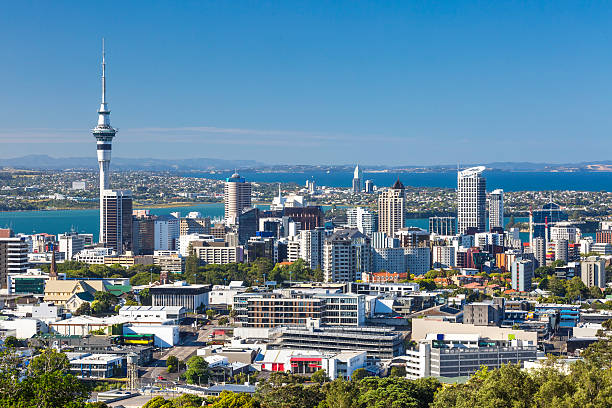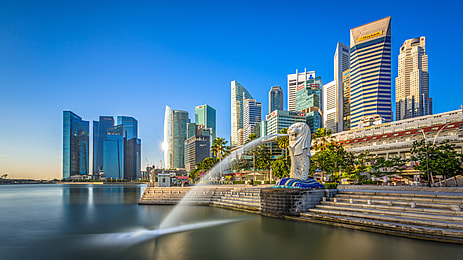Equatorial Guinea Travel Guide: All you need to know to visit Equatorial Guinea in 2024
Welcome to Equatorial Guinea
Equatorial Guinea country information
Equatorial Guinea provides each tourist with a unique experience with its breathtaking natural beauty, rich cultural legacy, and friendly friendliness.
Geography
Bordered by Cameroon to the north and Gabon to the south and east, it is situated just above the equator, giving the nation its name. Equatorial Guinea has a land area of around 28,000 square kilometers and comprises a mainland region and an archipelago of islands in the Gulf of Guinea. The nation, which has a population of approximately 1.4 million, is renowned for the diversity of its ethnic groups, which include Fang, Bubi, and others. The tropical climate fosters lush rainforests and rich biodiversity, making it a haven for unique wildlife and plant species. Equatorial Guinea’s economy is primarily driven by its significant oil and gas reserves, but it faces challenges related to income inequality and limited access to essential services.
Population
Equatorial Guinea had an estimated population of around 1.4 million people. The country’s population is characterized by its diverse ethnic makeup, with the largest ethnic groups being the Fang, Bubi, and other minority groups. Despite its relatively small population, Equatorial Guinea is known for its high population growth rate. Most people live in urban regions, especially in the largest city, Bata, and the capital, Malabo. The nation has experienced significant economic growth due to its oil and gas resources. Still, it faces challenges such as income inequality and limited access to education and healthcare, particularly in rural regions.
Climate
Equatorial Guinea has a predominantly tropical climate due to its location near the equator. The country experiences consistently high temperatures throughout the year, with relatively minor variations between seasons. Average temperatures range between 24°C to 30°C (75°F to 86°F) in coastal regions and slightly cooler temperatures in the inland areas due to higher elevations. Humidity levels are generally high, and Equatorial Guinea receives abundant rainfall, especially during the wet season, which lasts from March to November. The dry season brings slightly drier and more comfortable conditions from December to February. Because of the abundant rainfall, the nation has lush rainforests that serve as a home for many species of wildlife and plants. However, the constant humidity and wet conditions can pose challenges for specific activities and infrastructure maintenance.
Economy
Equatorial Guinea’s economy relied heavily on its oil and gas resources, accounting for a significant portion of its GDP and government revenue. Large oil reserves were discovered in the 1990s, causing a significant economic change that sped up growth and raised per capita income. However, the country faced challenges in managing this newfound wealth effectively, with income inequality and widespread poverty persisting despite the oil revenue. The government had tried diversifying the economy by investing in other sectors, such as agriculture, fishing, and tourism. Still, progress in these areas remained limited—furthermore, the economic dependence on oil left Equatorial Guinea vulnerable to fluctuations in global oil prices. Additionally, there were concerns about transparency and governance in the management of oil revenues. As a result, addressing economic diversification and sustainable development were critical priorities for the country’s long-term financial stability and prosperity.
Culture
Equatorial Guinea is a culturally diverse country, reflecting the heritage of its various ethnic groups. The three main ethnic groups are the Fang, Bubi, and Mdowe, each with distinct languages, customs, and traditions. Traditional music and dance play a significant role in Equatorial Guinean culture, with rhythmic performances showcasing the country’s rich cultural history. The Fang people are known for their impressive wooden carvings and masks, which hold spiritual and ceremonial significance. The Bubi people, residing on the island of Bioko, have preserved their unique traditions and craftsmanship. Spanish influence is also prominent due to the colonial history, and Spanish remains an official language alongside French and Portuguese. Equatorial Guinea celebrates several vibrant festivals, with the Malabo International Book Fair and the Equatorial Guinea National Day being notable events. Family and community values are essential; gatherings often involve communal meals and celebrations. Despite modern influences, Equatorial Guineans are firmly rooted in their cultural heritage, which contributes to the nation’s diversified and lively character.
Language
Equatorial Guinea is a linguistically diverse nation, reflecting its rich cultural tapestry. The country recognizes three official languages: Spanish, French, and Portuguese, inherited from its colonial history. Spanish is the most widely spoken and serves as the primary language for administration, education, and media. French is also used in some official capacities and as a language of instruction in certain schools. Though less prevalent, Portuguese is also present due to Equatorial Guinea’s membership in the Community of Portuguese Language Countries (CPLP). Besides the official languages, Equatorial Guinea is home to numerous indigenous languages, with Fang, Bubi, and Mdowe being the most prominent. These languages are essential for maintaining the traditional knowledge and cultural legacy of the nation’s many ethnic groups. The multilingual nature of Equatorial Guinea reflects the diversity and historical influences that have shaped its linguistic landscape.
Religion
Religion in Equatorial Guinea is diverse, with most of the population being Christian. Roman Catholicism is the dominant religion, introduced during the colonial period and embraced by many people. Many aspects of traditional African beliefs and customs coexist with Christianity, reflecting a syncretic blend of faiths. Moreover, Protestant denominations, such as evangelical and Pentecostal churches, have gained popularity recently, attracting many followers. Islam is practiced by a minority, primarily among immigrant communities. Despite religious diversity, religious freedom is generally respected in Equatorial Guinea, and the country celebrates Christian holidays and festivals as part of its cultural fabric. Spiritual practices and beliefs play a significant role in shaping the social and cultural life of the nation, contributing to its rich and multifaceted identity.
Related Articles

5 min read
New Zealand Introduces Key Changes to Post Study Work Visa : What You Should Know
According to the government, this change will provide students with greater flexibility in their academic choices while ensuring they remain eligible to work. For many students, studying abroad is a
Read More
5 min read
The Singapore visa processing time for Indian citizens
Singapore is a small island located in the Malay Peninsula in Southeast Asia. It is one of the most economically developed countries in the world. Singapore is a fantastic place
Read More
5 min read
How Much Does an Australia Trip Cost from India?
If you are planning a trip from India to Australia, you must follow some of the points. that are : Planning Budget Traveling date and time To which place you
Read MoreIndian citizens can stay in Equatorial Guinea for up to 30 days.
You can apply for Equatorial Guinea visa through us. Just follow the following procedures:
- Contact our agency and provide your personal information, including your name, passport details, and travel dates.
- Pay the visa processing fee through our agency’s secure payment gateway.
- You must upload all necessary documents to our agency’s website or email them to the agency.
- We will verify that all your documents are in order and contact you if additional information or documents are required.
- We will submit your visa application.
- Wait for the visa procession.
Applying for an Equatorial Guinea visa one month before the visit date is advisable.
The Equatorial Guinea visa is valid for 30 days.
